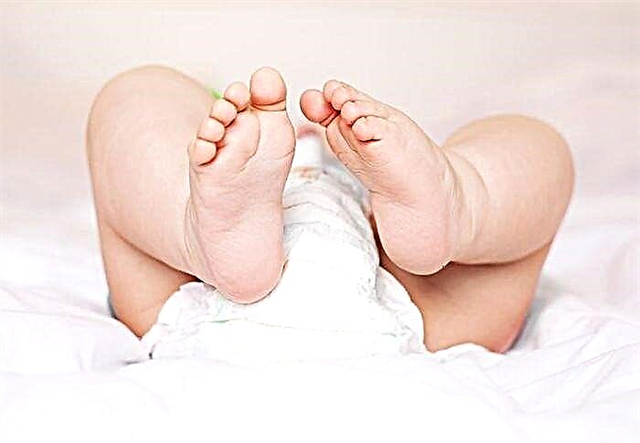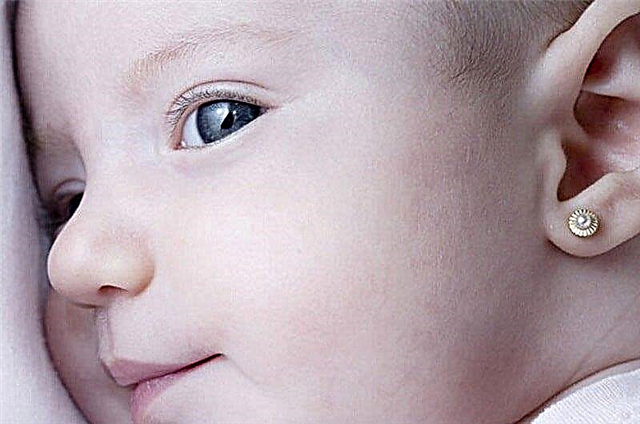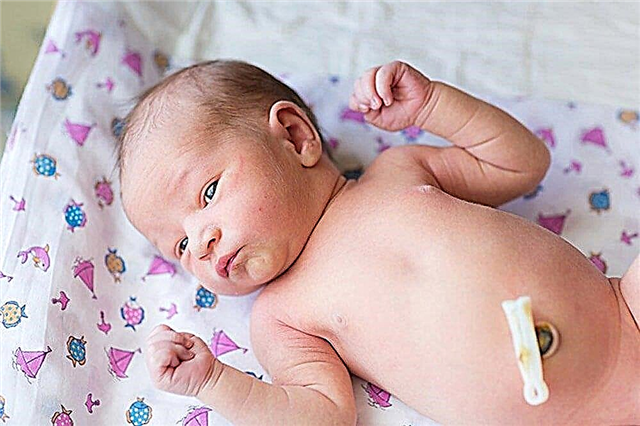Having taken the child from the hospital, the parents begin to study and observe him in more detail. They are worried about the general condition of the baby, his reactions to the world around him, manifested in motor activity, vision, hearing, crying. Sometimes parents are alarmed that their newborn child does not respond (or reacts very weakly) to extraneous noises and sounds, may not notice or wake up from a working TV, some noises from a neighboring apartment, etc. That is why many parents are interested in whether newborn babies can hear well right after birth or not at all.

The period when the child begins to hear has long been established - this happens at 16-17 weeks of pregnancy.
Proven: the child was not born, but already hears
While in the womb, the baby already has the ability to hear and respond to sound. During intrauterine development, there is a reaction to music and voices, which has been repeatedly proven experimentally: Mom, in her last pregnancy, read several children's poems. When a certain time passed after the birth of the child, a familiar verse was read near him and the reaction of “recognition” followed: the child began to actively move his legs and arms.
Baby's reactions to sound
There are opinions of some parents that a newly born child still has poor hearing, or even does not hear at all due to the fluid in the inner ear, and begins to distinguish sounds only on the second or third day, but this is completely wrong!
From the first days of life, the child reacts to sounds, but mainly reacts only to loud sounds (sharp ones that can create a certain vibration), so if there is no reaction to a working TV, to calm voices, to other calm noises, you do not need to think that the baby is nothing he hears, he hears everything, he just doesn't react.
It is quite surprising that a newborn is able to distinguish a human voice from any other sound, i.e. Faster and best of all, among other voices, the baby begins to recognize the mother's voice that spoke during pregnancy.
The infant immediately after birth has a well-developed hearing and has a response to:
- intonation;
- rate of speech;
- timbre of voice;
- rattles;
- different sounds.
This is expressed in:
- in the motor activity of the legs and arms;
- head turns;
- searching for the source of the voice with the eyes;
- fading;
- flinching;
- crying;
- listening.
We repeat, if the child does not react to extraneous sounds during the first days, this does not mean anything. In any case, if this worries and scares you, you can always consult a doctor.
FACT. A baby hears the same when he is awake and when he is sleeping
By the end of the third month, the child consciously turns his head to any sound - a rattle or voices.
How to test your hearing
If you are concerned about your child being unable to hear, you can have their hearing tested. 3 - 5 days after birth, gently pat (naturally, without fanaticism 🙂) next to the baby's ear - the baby should blink or show any other reaction. Rattle the rattle to the right or left of the child's head - he will turn his head towards the sound. If the child does not react to sounds in any way, then it is necessary to see a doctor.
It is normal to react strongly to sounds
Many babies in the first weeks of life, with loud, harsh sounds, start, cry, they may have convulsive movements. The baby can react in the same way from a completely calm  a voice that sounded very close, unexpectedly. But such a reaction does not speak of him "Inadequacy"... On the contrary, it indicates a perfectly normal hearing.
a voice that sounded very close, unexpectedly. But such a reaction does not speak of him "Inadequacy"... On the contrary, it indicates a perfectly normal hearing.
The same reactions can be manifested to any unfamiliar circumstances, not only in the first weeks of life, but almost before the onset of school age. This indicates that normally developing babies have a very high level of sensitivity to the external environment. Therefore, you need to talk with a newborn child calmly and evenly.
Best of all, babies can distinguish high pitches by listening to a children's ringing song or rattle. Babies enjoy listening to spoken, calm speech, sometimes freezing or trying to find the source of the voice with their eyes. To develop hearing during wakefulness, include nursery rhymes, read rhymes and just talk more with the baby.
By the beginning of the second month of life, the child's convulsive movements will disappear, the reaction to the voice will be expressed in more orderly and even movements. There is a clear reaction to the rate of speech. Observe:
- as soon as the pace of the mother's speech accelerates, the child's movements accelerate;
- mom switches to calm, measured speech - the movements also become smoother, more even and rhythmic.
If a child is very keen on something (plays with a toy, examines interesting and new objects to him), he may also not react to any extraneous sounds, this is quite normal, children are simply abstracted, so there is no need to worry.
Hearing problems
If during pregnancy a woman has had measles, rubella, or took toxic drugs, alcohol or drugs, then the child may have a disease such as hearing loss or deafness. To prevent hearing loss in a child, you need the help and advice of a specialist.
- When the child begins to see (how he sees and what newborn children see);
- When the child starts to gurgle (this is one of the joyful events)



